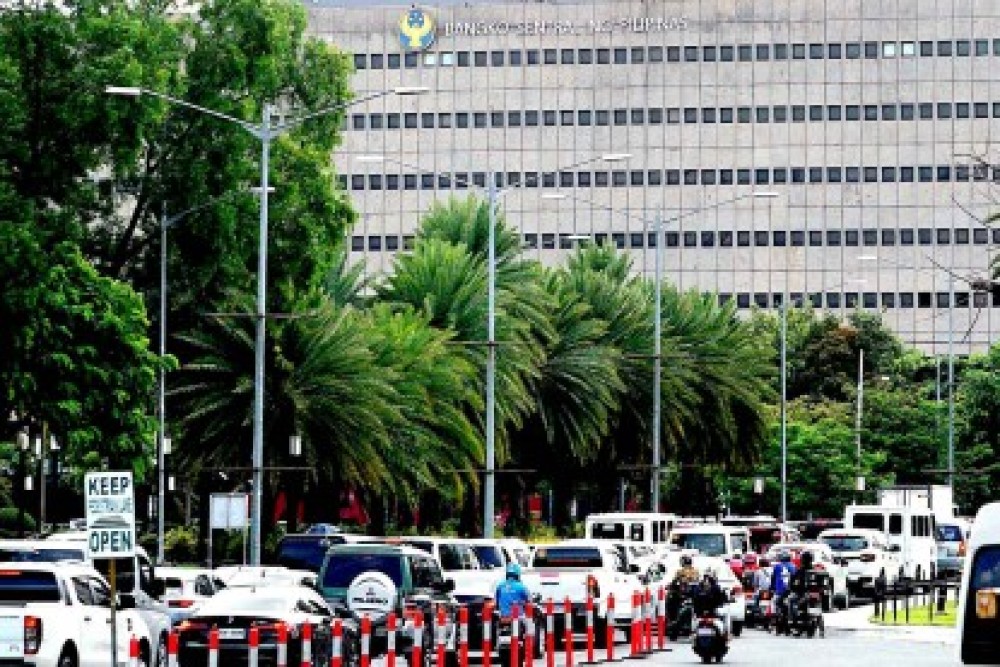An enhanced Peso Interest Rate Swap (Peso IRS) market is open now to market participants effective Nov. 18, the Bankers Association of the Philippines (BAP) said.
BAP said the development stemmed from the release of the updated International Swaps and Derivatives Association (ISDA) definitions on Nov. 15.
Among the rates published, the Philippine Overnight Reference Rate (ORR) is included, serving as anchor for the enhanced Peso IRS market.
“The enhanced Peso IRS market aims to promote development of yield curves to further support the pricing requirements of short-term credit instruments, such as loans, in the market,” BAP Open Market Committee chair Paul Favila said.
According to BAP, 16 of its member-banks will serve as market-makers that will quote two-way prices for the short- and long-term swaps against the Philippine ORR.
These include Banco de Oro, Bank of the Philippine Islands, China Bank, EastWest Bank, Metrobank, Philippine National Bank, Security Bank, Rizal Commercial Banking Corporation, Union Bank, Australia and New Zealand Banking Group, Citi Deutsche Bank, HSBC, ING Bank, JP Morgan Chase, and Standard Chartered Bank.
Aside from these, BDO Private Bank, Maybank, Mizuho, MUFG (Mitsubishi UFJ Financial Group) and SMBC (Sumitomo Mitsui Banking Corporation) will also serve as regular participants.
Bloomberg, meanwhile, will serve as the trading platform for the enhanced Peso IRS market.
“Now that the enhanced Peso IRS market has gone live, it is time to work together and ensure that the reforms we have pursued will fulfill their goals,” BAP president Jose Teodoro Limcaoco said.
“The launch of the enhanced Peso IRS market, together with the creation of a repo market for government securities, are valuable steps towards growing our Philippine capital market.”
In a separate statement, the Bangko Sentral ng Pilipinas (BSP) said the launch of the new interest rate swap market is a significant step toward boosting trading and liquidity in the domestic bond market.
The BSP said this is part of a plan to deepen the local capital markets to enhance savings and investment in the Philippines.
“We are excited for Peso IRS to go live to help boost transactions, create a benchmark yield curve, and deepen our capital markets,” BSP Governor Eli Remolona said.
“A benchmark curve will help banks and other lenders price loans at various maturities. This whole effort is just one of many steps the national government, the BSP, and Philippine and foreign banks are working on very closely together to achieve these objectives. Foremost among these is to provide the liquidity investors need to invest in our fast-growing economy.”
Aside from Peso IRS initiative, the BSP said the Bureau of the Treasury (BTr) will set within this month the procedures for residents of 43 countries covered by tax treaties, with the Philippines to pay only the rate agreed upon in these treaties, rather than paying the full tax then seeking a refund.
The BTr is also creating more liquid benchmarks by concentrating issuance and bond reopenings in a few selected maturities.
The BSP, for its part, is working on adopting Global Master Repurchase Agreement contracts, allowing it to actually deliver treasury bonds to banks when they enter into repos as part of monetary policy operations.
This is expected to boost the government securities repo market, currently mostly interbank, as banks gain access to BSP’s Treasuries, which they can repo as well for added profit.
Meanwhile, the Department of Finance pushed for legislation that would simplify tax rates for passive income, financial intermediaries and deepen the capital market.
Officials are engaged with credit rating agencies, financial market index providers, and other stakeholders to make Philippine assets more accessible to local and foreign investors.
Philippine US dollar bonds are rated BBB+ by S&P Global, and Baa2 and BBB by Moody’s and Fitch.
In October, JPMorgan & Co. said the Philippines is one of two countries “on the radar” for inclusion in its Government Bond Index-Emerging Markets index.
“For the central bank, this will make it easier for the BSP to transmit monetary policy, maintain price stability, and promote sustainable growth and job creation,” Remolona said.
“This means interest rates will be more transparent, making it easier for SMEs (small and medium enterprises) and consumers who are shopping for a loan to expand their business or make an important investment or purchase.”


